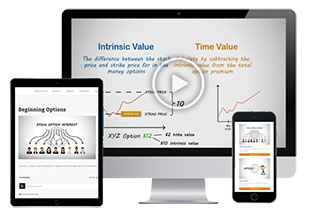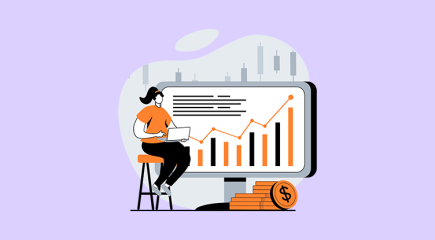Whether you’ve just started your first job, started bringing in some side income through freelancing, or just received a substantial pay-raise, knowing how to be smart about your income is almost as important as having income in the first place. It’s all too easy to squander your hard-earned cash without even realizing where it’s all gone until you see that big fat zero in your checking account—or that massive credit card bill at the end of the month.
Today, we’re breaking down what you need to know to be financially smart with your income. Personal finance can be difficult at first. It’s definitely a learning process, and it’s okay to make a few mistakes along the way. But, ultimately, with the right strategies in your playbook, your financial wellbeing can set you on the road to success.
Set up a monthly spending plan
The biggest first step you can make in your journey to smart personal finances is to set up a personal spending plan. A spending plan is part of your overall budget, but it’s specifically built to tell you what you should spend your money on, and how much money you should be spending on each area.
Let’s say that each month, you bring home $2500 after taxes. While it might be tempting to immediately head out to your nearest mall and purchase an expensive new laptop or jewelry, or go out and have a wild night on the town, it’s important to first plan out your spending. For example, this may be a plan you make:
- Rent: $600
- Bills & Utilities: $300
- Groceries: $200
- Restaurants, Cafes & Bars: $200
- Clothes: $50
- Car expenses: $250
Once you’ve set up a spending plan like the general one shown above, you can choose to allocate your remaining funds however you please. You can use budgeting apps, spreadsheet software, or even just a pen and paper to set up your monthly spending plan. The important thing is that you stick to your budget. A little overspending here and there might not kill you, but consistently going over the amount you’ve allotted for each category could put you in dangerous territory.
In the situation described above, after the listed expenses are accounted for, you’d still have $900 left to work with. If you are in a position where, once you’ve covered your baseline monthly costs, you have a little extra money, it’s time to think about what to do with it.
Prioritize savings and debt repayment
Let’s say that, like the above example, you still have some money left over after all your regular expenses have been planned out. Again, it might be tempting to spend it all in one place. And, while you certainly can save up to buy things that will make you happier or improve your quality of life, it’s good to have a plan for that too.
Before you do start saving for a big purchase, though, it’s wise to prioritize general savings and debt repayment. If you have student loans, for instance, it’s smart to make sure you’re on top of that — you don’t want to risk wage or tax refund garnishment if you do miss payments. The best thing to do is set up a regular monthly autopay, so you never have to worry about remembering to make a payment.
Next, once you’ve covered your monthly debt bills, it’s time to think about savings. Many young people don’t immediately worry about savings once they’ve started earning money — either because the prospect of retirement seems so distant that they don’t prioritize it, or because a sudden emergency seems so unlikely they just don’t want to think about it.
However, no matter your age, you should always prioritize building up savings. Before thinking about options like investing (more on that below), there are two basic areas that you should think about saving:
- Emergency savings: This is money that you save up to use in case there is some, well, emergency. Maybe your tire explodes on the highway and you need a new set. Or maybe you break your arm and the hospital copayment is bigger than you thought. In situations like these, you’ll want emergency savings. Most experts recommend an emergency savings account should have about 3 to 6 months’ worth of income stashed away.
- Retirement savings: Yes, even a 22 year old fresh out of college should consider opening an IRA, or contributing to their employer-sponsored 401k if they have that option. Because of the power of compounding interest, starting your retirement savings early means that, in the long-run, your savings will be much larger than if you were to wait around to start until your 30’s. Additionally, plan for things in advance, like how you can eventually apply for a reverse mortgage.
After you’ve built up your emergency savings and retirement, it’s time to think about what you can do with any extra income you may have.
Know where to stash your extra cash
Investing isn’t just for Wall Street hot shots making big bets on new up and coming startups. It’s a tool that just about anyone with extra disposable income can use to build up their personal finances and plan for the future. If you’re new to investing, here’s what you need to know to get started easily:
- Try out the apps. There are tons of great investing apps out there that can help you make sense of the world of finance and help you grow your net worth. Some apps, called robo investors, actually allow you to deposit funds into an algorithmically managed portfolio. These options are pretty hands-off, and make great choices for beginner investors.
- Consider talking to a broker: If you have more funds that you want to manage, or if you’re curious about making bets on individual stocks, it’s a good idea to chat with a professional. Plenty of brokers are happy to work with first-time clients, and may even offer you a deal for the first few thousand you invest.
Whatever you decide to do with your income, it’s wise to remember the important things: cover your basic expenses, put some money away for retirement and a rainy day, and then start thinking about how to grow your assets for the future.







